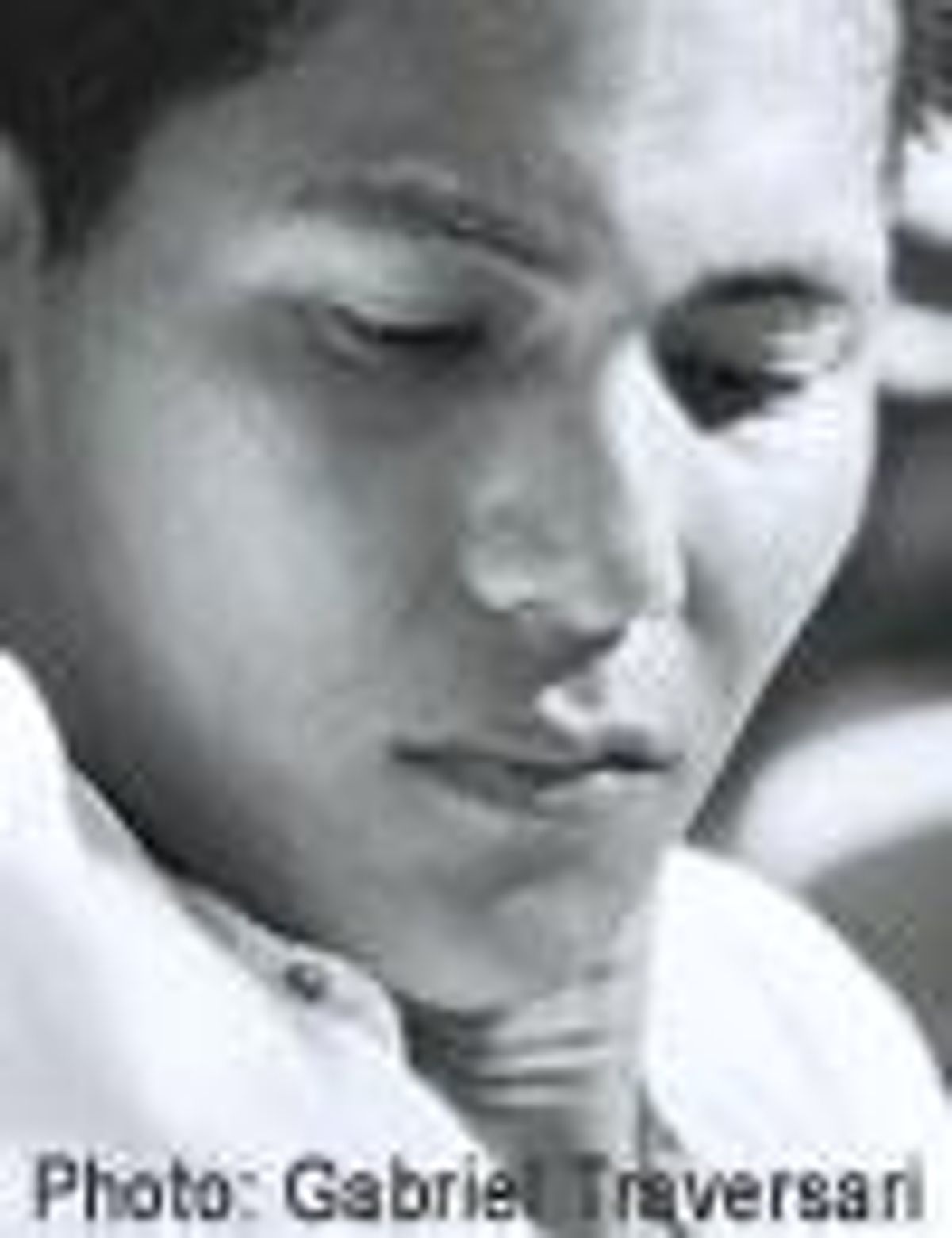This fall George
Takei came out of the closet to boldly go where no Asian
has gone before. I don't even know why it made the
few headlines that it did. He's irrelevant to
the younger generations. Had he come out when he was
part of the media landscape, he would have had a more
profound effect. But today, it's too little too
late.
The fact is, if
gay Asian males have only George Takei as a symbol for
representation, then our plight is a sad one. The problem is
greater than gay Asian male representation; the
problem is Asian male representation as a whole, as
there is no representation at all in the media that is not
stereotypical.
There needs to be
someone to promote Asian male aesthetics. I have
struggled with this because I know our own standards for
what we find attractive are informed, if not
completely shaped, by the media. Therefore, how do I
find myself attractive when there is no image of Asian
males as beautiful to serve as a barometer? The only Asian
males who are represented in the media are kung fu
fighters and wizened gurus, such as the archetypal
"Mr. Miyagi," portrayed by the recently
deceased actor Pat Morita.
It's
different when it comes to Asian women, who are found
desirable in the straight world because straight men
have been socialized by the media to find Asian women
exotic beauties. I'm not saying that this is a
correct way to represent Asian women either, but when it
comes to aesthetic representation, Asian women have
certainly been elevated by actresses Tia Carrere, Lucy
Liu, and Ziyi Zhang, all of whom have become sex
symbols, cover girls, and objects of desire. Yes, they have
played stereotypical parts, but those same roles can
be seen as groundbreaking as well: Asian women as
dominant vixens. Even Disney caught on with that
notion long ago when it conjured up Mulan. Most
recently, Liu was an FBI agent in Domino, and
her character didn't play on any stereotypes.
What ends up
happening with many Asian gay men, especially young gay
boys, is that to find themselves attractive, they try to
become the equivalent of the Asian female. There is a
disproportionate number of Asian drag queens--and
while that may seem an extreme example, there must be
a latent psychological explanation for this phenomenon that
would be consistent with this theory--in order to find
oneself desirable in the Western world, the Asian male
becomes the equivalent of the exotic Asian female
beauty type, a sort of fetish, since there is no Asian male
representation of beauty. Many young gay Asian boys become
effeminate and androgynous because of their struggle
to find representation to support Asian masculinity as
desirable.
Sadly, Asian male
representation hit its nadir when William Hung became
the "Asian Idol"--with bad hair, bad teeth, no
rhythm, no pitch, an ironic last name (as per the
stereotype)--whom America loved for the sake of
laughter and at the expense of Asian dignity. Asian men do
not grace the cover of GQ and do not line the
pages of the A&F Quarterly. Asian men are
reduced to undesirable types, which makes finding
oneself attractive a difficult struggle.
I watched Mean
Girls recently with a bunch of friends. As the
token Asian, I am usually the butt of jokes, which I take
with a grain of rice. (I dread the release of
Memoirs of a Geisha, because the term
"gaysian" will proliferate.) While we were
watching the film, my friends decided to compare each
other to characters in the movie. Everyone else was
compared to a character based on idiosyncrasies and
personalities, but when it came down to the question
"Well, who is Aaron?" unanimously they
agreed I was one of the Korean girls--females who
remain nameless and are basically humiliated in the film
because they don't speak English, while they
compete for the "dominant" white male
figure as represented by the basketball coach. I have since
decided not to surround myself with these friends, who
don't see me as anything else but
"Asian."
Which raises the
other question: Why is it that the term
"Asian" has become a pejorative in the
gay scene? I'll explain what I mean with three
statements I always get from guys that I've dated:
(1) "Aaron, you don't seem
Asian..." (2) "Are you half
Asian?" (3) "I've never been with an
Asian guy before." All statements, without
saying it, point to my ethnicity as a negative
attribute. Then there's the term "rice
queen," which embarrasses me whenever the
person I date is dubbed one.
The media has to
become aware of this responsibility to provide Asian
male representation that promotes our type as aesthetically
appealing. As a last example, I will point to the fact
that in the entire Real World series on MTV (13
years and counting), there have been Asian women, but
never once an Asian male. We all know MTV's criterion
for the show is simple: You have to fit the look.

















































































Viral post saying Republicans 'have two daddies now' has MAGA hot and bothered